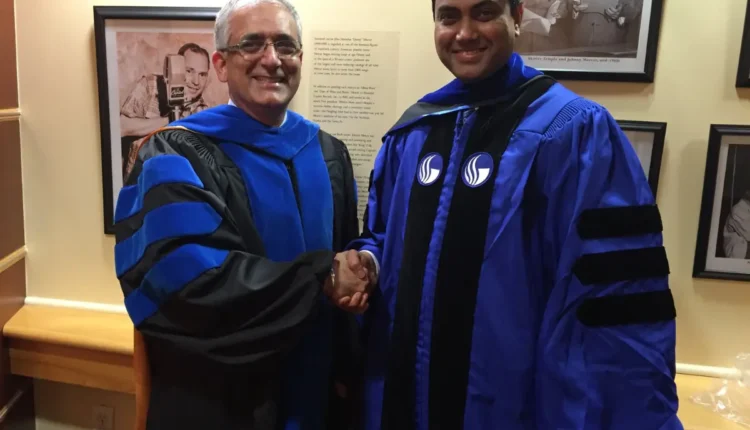Arun Rai :- In the dynamic realm of Information Systems, one name shines brightly—Arun Rai, a visionary scientist born in India and now a distinguished figure in the American academic landscape.
As a Regent’s Professor at the Robinson College of Business at Georgia State University, Arun Rai has carved a niche for himself, leaving an indelible mark on the field of IT-Enabled Process Innovation and Supply Chains.
Arun Rai’s Education Paving the Path
Arun Rai’s academic journey commenced with an integrated master’s degree in science and technology from BITS Pilani in 1985, followed by an MBA from Clarion University of Pennsylvania in 1987.
His thirst for knowledge led him to earn a Ph.D. in Management Information Systems from Kent State University in 1990. This foundation laid the groundwork for a distinguished career characterized by intellectual rigour and continuous learning.
Arun Rai: A Legacy of Leadership
Arun Rai’s professional trajectory is a testament to his leadership and scholarly prowess. He began as an assistant professor at Southern Illinois University at Carbondale in 1990, steadily climbing the ranks to become an associate professor.
In 1997, he made a pivotal move to Georgia State University, where he currently serves as a permanent Regent’s Professor.
Over the years, Arun Rai has demonstrated a commitment to nurturing the next generation of scholars, chairing an impressive 30 doctoral dissertations as of 2019.
His dedication to education and mentorship is evident in the success of his former Ph.D. students, many of whom hold esteemed positions within academia and the professional realm.
Awards and Global Recognition
Arun Rai’s impact extends beyond academia, earning him accolades that underscore his significant contributions to scientific research. In 2010, he was honoured as a Fellow of the Association of Information Systems (FAIS).
The prestigious LEO award, bestowed upon him in 2019 in Munich, solidifies his status as a luminary in the Information Systems discipline.
The Information Systems Society (ISS) also recognized his eminence by appointing him as a Distinguished Fellow in 2014. Arun Rai’s global influence is further exemplified by his visiting appointments at universities in Australia, France, Germany, Hong Kong, and Slovenia.
Research for Impact
For more than 30 years, Arun Rai’s research has been a beacon in the digital transformation landscape. His work revolves around the development and deployment of information systems to drive innovation and create value.
His insights span the digital transformation of organizations and supply chains, governance of IT investments, and the deployment of digital innovations to address societal challenges.
Engaging closely with organizations across sectors, Arun Rai’s research has left an indelible mark on entities such as Apollo Hospitals, China Mobile, IBM, and UPS.
His 250 peer-reviewed articles, including 120 in premier journals like MIS Quarterly and Information Systems Research, attest to the breadth and depth of his scholarly contributions.
Educator and Thought Leader
Beyond research, Arun Rai has played pivotal roles in shaping research programs and curricula. From digital innovation to supply chain management, his teaching portfolio spans diverse topics across various academic programs.
His leadership extends to the co-founding of the Center for Digital Innovation, a hub for interdisciplinary research on digital innovation’s role in addressing real-world business and societal challenges.
In terms of service, Arun Rai’s commitment is evident in his editorial roles for leading journals and his involvement in major associations and conferences. Notably, he served as the Editor-in-Chief of MIS Quarterly from 2016 to 2020, a period during which the journal solidified its status as a premier IS publication.
Also Read :- Ruchir Sharma: Decoding Global Economies and Trends

